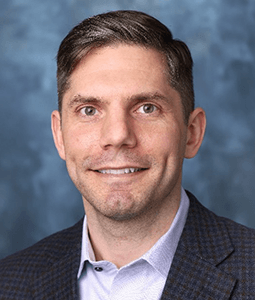School of Medicine Columbia
- SC.edu
- Study
- Colleges and Schools
- School of Medicine Columbia
- About
- Faculty and Staff
- Colin Evans Ph.D.
Faculty and Staff
Colin Evans, Ph.D.
| Title: | Assistant Professor |
| Department: | Cell Biology and Anatomy School of Medicine Columbia |
| Email: | colin.evans@sc.edu |
| Office: | Building 1 |
| Resources: | The Evans Laboratory |
 Follow @EvansLaboratory
Follow @EvansLaboratory
Education
2011: PhD (pass without corrections), Cardiovascular Biology, King’s College London, UK
2006: BSc (1st class honors), Exercise Science, University of Birmingham, UK
Experience
2019-2023: Research Assistant Professor, Northwestern University, USA
2017-2019: Senior Research Associate, Northwestern University, USA
2011-2017: Postdoctoral Research Associate, University of Cambridge, UK
Biography
Dr. Evans obtained his PhD at King’s College London (2011) and performed postdoctoral training at the University of Cambridge (2011-2017) and Northwestern University (2017-2019). Following his appointment to the research faculty of Northwestern University (2019-2023), Dr. Evans joined the University of South Carolina as Assistant Professor (2023-present). In his current role, Dr. Evans is a lead faculty member of the Department of Cell Biology and Anatomy and the Cardiovascular Translational Research Center in the School of Medicine at Columbia. He is also an affiliate faculty member of the Biomedical Engineering Program in the College of Engineering and Computing.
Prior to joining the University of South Carolina, Dr. Evans received research funding from the British Heart Foundation, the British Society for Haematology, the University of Cambridge School of Biological Sciences, and the American Heart Association. His research is currently funded by the University of South Carolina School of Medicine, the American Heart Association, and the National Institute of General Medical Sciences.
Dr. Evans serves on the Editorial Boards of Thrombosis Journal, Thrombosis Research, and Thrombosis Update. He is an Associate Editor of Frontiers in Cardiovascular Medicine and serves on the Early Career Editorial Board of Arteriosclerosis, Thrombosis, and Vascular Biology. He has obtained grant and travel support from more than 15 sources and has published more than 60 papers in peer-reviewed journals.
Current Research Interests
How do blood vessels respond when blocked or injured? Can this response be leveraged to treat inflammatory vascular diseases? The Evans Laboratory studies the vascular response to thrombosis with a view to improving treatments for inflammatory vascular diseases including acute respiratory distress syndrome.
Using clinically relevant disease models and targeted gene editing and drug delivery techniques, the lab focuses on two discrete but related disease areas: (i) thrombus formation and resolution; and (ii) inflammatory lung injury and repair. Upcoming studies will target thrombosis-induced metabolic signaling pathways that control endothelial survival and proliferation for the treatment of sepsis-induced lung injury.
The overall vision of the lab is to improve the understanding and treatment of inflammatory vascular diseases through translational studies of the vascular response to thrombosis. The lab is in a supportive and inclusive environment with emphasis on scientific excellence and professional development. Contact from prospective collaborators and lab members is welcome.
Awards and Honors
2023: AHA’s Second Century Early Faculty Independence Award, American Heart Association, USA
2022: Research Leaders Academy, American Heart Association, USA
2022: Investigator Award, Santa Cruz Biotechnology, USA
2021: Travel Grant, ATVB Council, American Heart Association, USA
2021, 2022: Early Career Travel Award, International Society on Thrombosis and Haemostasis, USA
2020, 2021, 2022: Top Quartile Performance Award, Lurie Children’s Hospital of Chicago, USA
2019: Career Development Award, American Heart Association, USA
2016: Parke Davis Exchange Fellowship, University of Cambridge, UK
2015: Pump Priming Grant, British Heart Foundation, UK
2015: Early-Stage Start-Up Grant, British Society for Haematology, UK
2014: Junior Research Fellowship, Wolfson College, University of Cambridge, UK
2014: Associate Fellowship, Higher Education Academy, UK
2013: Travel Award, European Respiratory Society, NL
2012: Excellence in Science Award, American Association for the Advancement of Science, USA
2012: Young Investigator Award, Australasian Society of Thrombosis and Haemostasis, Australia
2012, 2014: Travel Fellowship, Thrombosis UK, UK
2008: Travel Grant, British Heart Foundation, UK
2007: Non-Clinical PhD Studentship, British Heart Foundation, UK
2006: Undergraduate Achievement Award, Physiological Society, UK
Publications
Lu X, Prodger A, Sim J, Evans CE. Pulmonary thrombosis promotes tumorigenesis via myeloid hypoxia-inducible factors. Biomolecules, 2022, 12(10), 1354.
Evans CE, Iruela-Arispe L, Zhao YY. Mechanisms of endothelial regeneration and vascular repair and their application to regenerative medicine. The American Journal of Pathology, 2021, 191(1), 52-65.
Huang XJ, Zhang X, Zhao DX, Yin J, Hu G, Evans CE, Zhao YY. Endothelial HIF-1α is required for vascular repair and resolution of inflammatory lung injury through FoxM1. The American Journal of Pathology, 2019, 189(8), 1664-79.
Jin H, Pi J, Zhao Y, Jiang J, Li T, Zeng X, Yang P, Evans CE (co-corresponding author), Cai J. EGFR-targeting PLGA-PEG nanoparticles as a curcumin delivery system for breast cancer therapy. Nanoscale, 2017, 9, 16365-74.
Evans CE, Zhao YY. Impact of thrombosis on pulmonary endothelial injury and repair following sepsis. American Journal of Physiology - Lung Cellular and Molecular Physiology, 2017, 312(4), L441-51.
Evans CE, Bendahl P-O, Belting M, Branco C, Johnson RS. Diverse roles of cell-specific HIF1 in cancer-associated hypercoagulation. Blood, 2016, 127(10), 1355-60.
Grover SP, Evans CE (co-first author), Patel AS, Modarai M, Saha P, Smith A. Assessment of venous thrombosis in animal models.
Arteriosclerosis, Thrombosis, and Vascular Biology, 2016, 36(2), 245-52.
Evans CE, Grover SP, Jenkins J, Saha P, Patel A, Patel AS, Lyons OT, Modarai B, Smith A. Anti-angiogenic therapy inhibits venous thrombus resolution. Arteriosclerosis, Thrombosis, and Vascular Biology, 2014, 34(3), 565-70.
Kim J, Evans C, Weidemann A, Takeda N, Stockmann C, Branco-Price C, Branberg F, Leone G, Ostrowski M, Werb Z, Johnson RS. Loss of fibroblast HIF-1α accelerates tumorigenesis. Cancer Research, 2012, 72(13), 3187-95.
Evans CE, Humphries J, Mattock K, Waltham M, Wadoodi A, Saha P, Modarai B, Maxwell PH, Smith A. Hypoxia and upregulation of hypoxia-inducible factor 1 alpha stimulate venous thrombus recanalisation. Arteriosclerosis, Thrombosis, and Vascular Biology, 2010, 30(12), 2443-51.
View Dr. Evans' full list of publications on his MyBibliography page in NCBI.